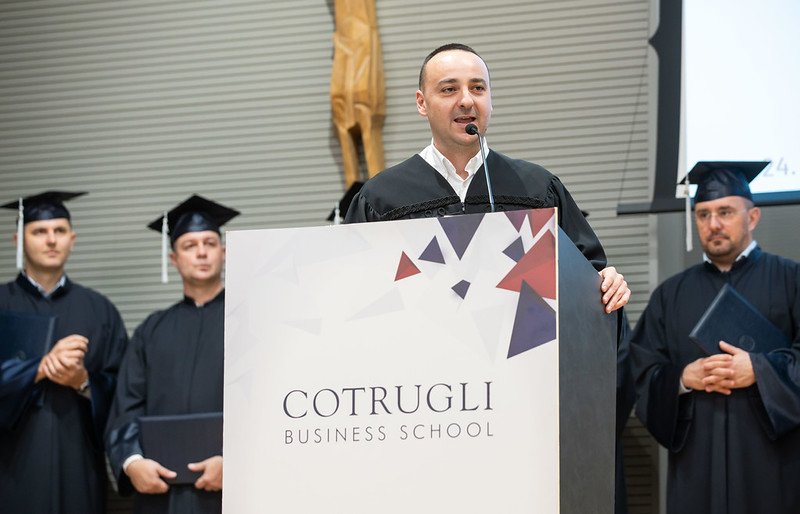
Intro to COTRUGLI Stories – Part 1: Why Now
07/08/2025
Stablecoin 101: A Clear Guide to Digital Currency Stability
13/10/2025
The Mystery: How Did They Do It So Fast?
Picture this: Two 21-year-old friends get kicked out of Columbia University. Three months later, their company is worth $120 million and has reached over one billion people online.
How is this even possible? What did Roy Lee and Neel Shanmugam do that 99.9% of businesses can’t achieve in years?
The answer likely lies in their bold, controversial, and worth exploring approach, spead and execution.
The Beginning: A Controversial Idea
Roy and Neel were regular college students at Columbia University until they created something that got them suspended. They built an AI tool that could help people cheat on job interviews.
Yes, you read that right. Cheating.
Most people would hide from this embarrassing story. But Roy and Neel? They decided to make it their superpower.
The First Bold Move: The Dating Video
Instead of apologizing, they did something shocking. In April 2025, Roy made a video of himself on a date. But here’s the twist – he was secretly using AI to tell him what to say to the woman across from him.
The video went viral. People were angry, curious, and amazed all at the same time. Some called it genius. Others called it dishonest. But everyone was talking about it.
This was their first lesson: Controversy gets attention faster than perfection.
The Party That Stopped Traffic
A few months later, they threw a party after a big startup event. They expected maybe 100 people to show up.
Instead, 2,000 people came.
The party was so big that the police had to shut it down. Videos of the chaos spread across social media like wildfire. Once again, people were talking about Cluely.
The Social Media Machine
While everyone was talking, Roy and Neel were building something powerful behind the scenes. They created what you might call a “content army.”
Here’s what they did:
They hired 50+ content creators to make videos about their product. But they didn’t stop there.
They planned to hire 2,000 more creators. Each person had to post at least 4 TikTok videos every single day.
They hired 50 “growth interns” whose only job was to create social media content. These weren’t just any people – each intern needed at least 100,000 followers on social media.
Their team of 7 people each had over 100,000 followers and were constantly posting content.
Think about it: That’s like having your TV station, radio show, and newspaper all working 24/7 to promote your business.
The Numbers Don’t Lie
The results were incredible:
- Over 1 billion people saw their content online
- One announcement video got 5.4 million views
- Another post reached 1.2 million people
- They gained 70,000 users in just a few weeks
- They made millions of dollars in revenue
All of this happened in just 3 months.
Is this a Secret Formula?
So what was their secret? Let’s try to figure out.
It wasn’t the product. It wasn’t luck.
Some hints for reasearch:
1. While other companies spent months making their product “perfect,” Cluely launched quickly and improved as they went. They knew that being talked about was better than being ignored.
2. Getting kicked out of college? That became their origin story. Creating a “cheating” tool? That became their controversial hook that got everyone’s attention.
3. Most businesses post on social media once or twice a day. Cluely treated content creation like their main business. They were posting hundreds of times per day across all platforms.
4. They understood that making some people angry was okay if it made other people extremely interested. Controversy cuts through the noise of boring business content.
5. While competitors were having meetings about meetings, Cluely was launching, testing, and improving in real-time.
So quick lessons are:
Be Bold, Not Perfect.
Turn Problems Into Stories:
Create Content Like a Media Company
Use Controversy Wisely
Move Fast and Break Things
Why It Worked
Remember the question we started with? How did two college dropouts build a $120 million company in 3 months?
The answer is most likely they figured out a simple truth about modern business: Attention is the new currency.
In today’s world, you can have the best product, but if nobody knows about it, you have nothing. Cluely chose to be famous first and perfect second.
They got people talking by:
- Being controversial when everyone else played it safe
- Creating massive amounts of content when others posted occasionally
- Moving fast when others moved carefully
- Turning their mistakes into marketing gold
Advice for Small Businesses: What Can You Learn?
You don’t need to get kicked out of college or create controversy to grow fast. Here’s what small businesses can learn from Cluely’s playbook:
1. Start Before You’re Ready
Don’t wait for your product or service to be perfect. Launch with 80% and improve as you go. Cluely launched their “cheating tool” and evolved it into a business tool.
2. Create Content Like Your Business Depends On It (Because It Does)
- Post daily on at least two social media platforms
- Share behind-the-scenes content of your business
- Tell your story, including the struggles and failures
- Show your personality – people buy from people, not companies
3. Turn Your Biggest Problem Into Your Biggest Story
What embarrasses you about your business journey? What went wrong? That might be your best marketing story. People connect with authentic struggles more than perfection.
4. Build Your Own “Content Army” on a Budget
You can’t hire 50 creators, but you can:
- Partner with 3-5 local influencers or micro-influencers
- Encourage customers to share their experiences
- Create content that your customers want to share
- Ask friends and family to help spread the word
5. Move Fast in Small Ways
You don’t need to throw 2,000-person parties, but you can:
- Respond to comments and messages within hours, not days
- Try new marketing ideas weekly, not monthly
- Launch new products or services quickly and improve them based on feedback
- Make decisions fast – most decisions are reversible
6. Use “Controlled Controversy”
You don’t need to be offensive, but you can:
- Take a strong position on industry issues
- Share unpopular but honest opinions about your field
- Challenge the way things are “normally” done
- Be willing to disagree publicly with competitors (respectfully)
7. Measure What Matters
Track these key numbers:
- How many people are talking about your business online?
- How fast are you gaining new customers?
- How quickly are you creating and sharing content?
- Are people sharing your content without you asking?
The Final Take Away
Cluely’s story isn’t just about two bright kids who got lucky. It’s about understanding that in 2025, the fastest way to build a business is to create an audience first.
They proved that if you can get people talking about you, everything else becomes easier: raising money, finding customers, hiring employees, and growing your business.
The question isn’t whether their methods were perfect or even entirely ethical. The question is:
What can you learn from their success to grow your own business?
Remember: You don’t need to be controversial to be memorable. You just need to be brave enough to be different, fast enough to stay ahead, and smart enough to turn attention into customers.
The biggest risk in business today isn’t failure – it’s being ignored.
Don’t let that happen to your business.
Final note: I will follow their progress… Top 10 for new business case on Vanguard Leadership, Marketing and Strategy




